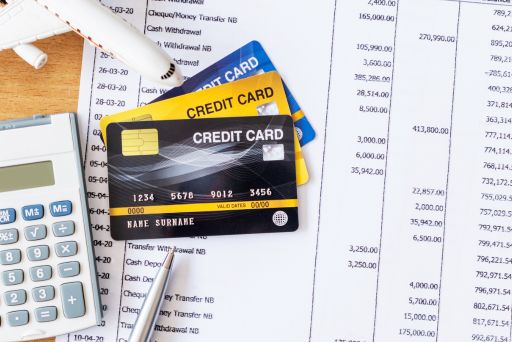A bank statement is an essential document that plays a critical role in managing your finances. Whether you’re an individual maintaining a personal checking account, a small business owner, or a large corporation, understanding your bank statement is vital for effective financial management. But what is the purpose of a bank statement? This article delves into the purpose, contents, and benefits of bank statements while emphasizing the importance of reviewing them regularly.

What Is a Bank Statement?
A bank statement is a detailed record provided by your financial institution that outlines all the financial activities in your bank account over a specific period. Typically issued monthly, these statements provide a comprehensive overview of your account activity, including deposits withdrawals, payments, interest earned, and any fees charged to your account.
Statement Period
The statement period refers to the timeframe covered by the bank statement. It usually spans one month, although it can vary depending on the bank or the preferences of the account holder. Understanding the statement period is crucial as it allows you to track and review your financial activities over time.
The Purpose of a Bank Statement
So, what is the purpose of a bank statement? Bank statements serve multiple purposes, both for the account holder and the financial institution. Here are the key purposes:
1. Record Keeping and Financial Management
One of the primary purposes of a bank statement is record keeping. Bank statements provide an official document that records all transactions within a certain period. This record is essential for tracking expenses, creating budgets, and understanding your spending habits. By reviewing your bank statements regularly, you can better manage your finances, save money, and plan for future expenses.
2. Fraud Detection and Security
Another critical purpose of bank statements is to help you identify fraudulent activity. By reviewing your bank statement, you can quickly spot any unauthorized transactions or suspicious activity. If you notice fraudulent transactions, it’s important to contact your bank immediately to rectify the situation. Bank statements serve as a tool to protect your finances by enabling you to identify and address any potential security breaches.
3. Error Detection and Correction
Mistakes happen, even in financial institutions. Bank statements allow you to identify errors such as incorrect charges, missed deposits, or accounting errors. Regularly reviewing your bank statements ensures that you can correct mistakes and maintain accurate financial records. This is especially important for businesses where accounting errors can have significant financial implications.
4. Official Documentation for Financial Activities
A bank statement also serves as official documentation of your financial activities. Whether you’re applying for a personal loan, a mortgage, or filing your tax returns, bank statements are often required as proof of income and financial health. Lenders and tax authorities use bank statements to verify your account balances, cash flow, and account history. This makes them a crucial document for various financial processes.
How to Read a Bank Statement
To maximize the benefits of a bank statement, it’s essential to know how to read and interpret the information provided.
Account Summary
At the top of your bank statement, you’ll typically find an account summary. This section provides an overview of your bank account, including the beginning balance (the amount in your account at the start of the statement period), the total of all deposits withdrawals, and the closing balance (the amount in your account at the end of the statement period).
Transaction History
The transaction history is the heart of your bank statement. This section lists all the transactions that occurred during the statement period. Each entry includes the date, description, and amount of the transaction. Transaction history allows you to track your spending, review pending transactions, and ensure all debits and credits are accurate.
Account Activity
The account activity section provides a more detailed breakdown of your account details, including deposits withdrawals, electronic fund transfers, and any interest earned. This section is critical for understanding your daily financial activities and identifying any accounting errors or fraudulent transactions.

Different Types of Bank Statements
Bank statements can be delivered in various formats, depending on your preferences and the services offered by your financial institution.
Paper Statements
Paper statements are the traditional form of bank statements. These are physical documents mailed to your address. Paper statements are useful if you prefer having a hard copy of your financial records for own records or for filing purposes. However, they can also be more prone to getting lost or damaged.
Electronic Statements
Many financial institutions now offer electronic statements or e-statements. These are digital versions of your bank statement that you can access through online banking. E-statements are convenient, environmentally friendly, and often more secure than paper statements. Electronic statements also allow you to easily search for specific transactions, making it easier to review your account activity.
Monthly Statements vs. On-Demand Statements
While most banks issue monthly statements, some allow you to get a bank statement on-demand. This feature is especially useful for account holders who need to provide proof of their financial health for applications or financial planning purposes outside the regular statement period.
The Importance of Regularly Reviewing Bank Statements
Regularly reviewing your bank statements is crucial for maintaining control over your finances. Here are a few reasons why you should make it a habit:
1. Monitoring Spending Habits
By regularly reviewing your bank statements, you can gain insights into your spending habits. This helps you understand where your money is going and identify areas where you might be able to save money. Monitoring your spending also aids in creating budgets and ensuring that your spending aligns with your financial goals.
2. Identifying Potentially Fraudulent Activity
Regular reviews help in spotting potentially fraudulent activity early. Account holders should look out for unfamiliar transactions, duplicate charges, or other anomalies in their bank statement. Early detection of fraudulent activity can prevent significant financial loss.
3. Ensuring Accuracy of Financial Records
Reviewing your bank statements ensures that your financial records are accurate. Whether it’s for personal use or for maintaining the company’s financial health, accurate records are essential. Regular reviews help in spotting accounting errors and making necessary corrections before they become bigger issues.
4. Keeping Bank Statements Secure
Security is paramount when it comes to handling bank statements. Whether you opt for paper statements or e-statements, it’s essential to keep them secure to protect your financial health.
Protecting Physical Statements
For those who prefer paper statements, storing them securely is critical. Consider keeping them in a locked drawer or a safe to prevent unauthorized access. It’s also a good practice to shred old bank statements that are no longer needed to protect your financial records from identity theft.
Securing Electronic Statements
If you receive electronic statements, ensure your online banking account is protected with strong passwords and two-factor authentication. Most banks provide encryption for e-statements, but it’s also your responsibility to download them only on secure devices and avoid sharing them through insecure channels.
How Long Should You Keep Bank Statements?
Bank statements should be kept for up to seven years. This is particularly important for tax purposes, as the IRS may request bank statements as part of an audit. Additionally, bank statements can serve as proof of payment or account activity if disputes arise.

Conclusion
In conclusion, bank statements are indispensable tools for effective financial management. They offer insights into your account activity, help you monitor your spending habits, detect fraudulent activity, and serve as official documentation for various financial processes.
Frequently Asked Questions (FAQs)
1. What is the purpose of a bank statement?
The purpose of a bank statement is to provide a detailed record of all financial activities within a bank account over a specific period. It helps in financial management, detecting fraudulent activity, and serves as official documentation for various financial processes.
2. How often should I review my bank statements?
It’s advisable to review your bank statements regularly, ideally every month when you receive them. This helps you monitor your spending habits, identify any accounting errors, and detect any fraudulent transactions promptly.
3. Can I receive bank statements electronically?
Yes, most financial institutions offer electronic statements or e-statements that you can access via online banking. These are secure, convenient, and environmentally friendly alternatives to paper statements.
4. What should I do if I find an error on my bank statement?
If you find an error on your bank statement, contact your bank immediately to resolve the issue. Reviewing your statement carefully allows you to identify errors and correct them before they impact your financial records.
5. How long should I keep my bank statements?
You should keep your bank statements for up to seven years. This is important for tax purposes and in case you need to reference them for official documentation or disputes.

